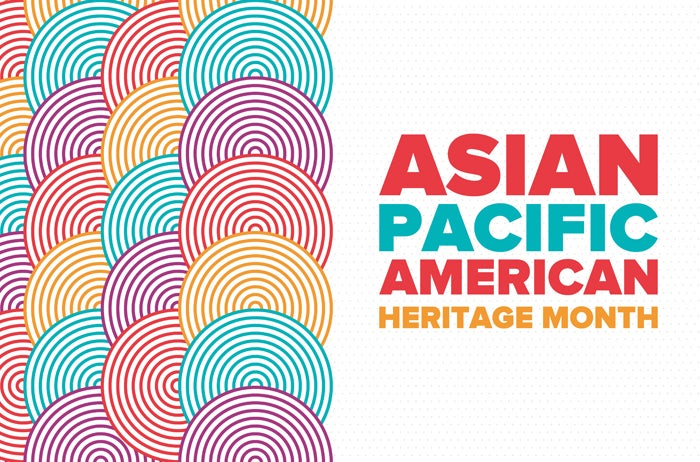Meet Inyong Kim, Adobe’s New Asian Employee Network Lead

Having been with Adobe for over seven years, Inyong Kim has had an impactful career shaping the leadership and people agenda across organizations as an HR Business Partner. In addition to Inyong’s role as the Vice President of Employee Experience, she is the new lead for (AEN), which is committed to driving leadership and professional development of Asians and Asian Americans, and raising the overall awareness of Asian culture and community.

To celebrate APAHM, AEN members are giving voice and visibility to the diversity of their experiences by creating Adobe Spark posts that celebrate their heritage. Responding to the prompt, “I am…” we are generating a rich tapestry of Asian, Pacific Islander and ally stories to embrace our similarities, honor our differences, and uplift the Asian and Pacific Islander community.
Katie Juran, Senior Director of Diversity and Inclusion at Adobe, sat down with Inyong for an intimate Q&A that explored her unique upbringing being an immigrant, her career path, what her priorities are for AEN, and more. Here are a few highlights from the conversation.
Tell me about your upbringing.
I was born in Seoul, South Korea and immigrated to Oklahoma in the United States when I was 9. Back in 80s there were not a lot of minorities in the local community, but we ended up there because the family member who had sponsored our visa was stationed at the local army base. I spoke no English and I remember I had to adapt very quickly in a homogenous community.
How did you integrate?
My parents did not speak any English either, so growing up was very interesting. I remember I had to be bused to the only school that had an English as a Second Language program. There were maybe only 20 kids and 5 teachers. Each teacher spoke a different language! That’s how I learned and assimilated. For my parents, it was much harder. They were in their 30-40s and adjusting to the new culture and language was challenging. After going through most of the money we had, we were actually very close to moving back to Seoul but a family member in San Jose told us the experience was very different in Northern California – there was a community we could connect with. So we packed up the station wagon with everything we owned and drove to California.
We were able to settle in and find a way of life in California. For my family, our Korean community connection was the first generation Korean Christian churches here. Our family was able to plug into a community of immigrants who provided tremendous support and learnings from their own experiences. My parents were able to find jobs on hardware manufacturing production lines where many immigrants worked. They worked hard to support the family on low wages and most of what I remember is that they both worked two shifts a day, 5-6 days a week and my sister and I had to grow up fast at home.
Moving into your college days, when did you know you wanted to get into human resources?
I often tell people that where you land is based on lots of luck and the people you meet, as well as hard work. I initially thought I was going to major in mass communications, but I changed my mind after a few classes. I switched to the school of business and took a of couple classes on HR management. At the time it was an emerging program that was not well known but it had aspects of communications and psychology. Despite a professor telling me the field would be tough to get a job in, I stuck with it because I really enjoyed it.
One day, I was walking across the campus and stumbled across a university recruiting career fair. I decided to stop by and came across the National Semiconductor booth where an HR intern role was posted. The booth caught my eye because a close family friend from our church worked at the company. He offered to personally drop off my resume with the hiring manager to ensure it got reviewed. And it did (my manager later described the nice engineering manager who dropped off my resume praising my work ethic and asking her to take serious consideration). That is how I started my internship and career at National Semiconductor where I met many great HR leaders, including a dear colleague and mentor, Sharon Wells, who recently retired from Adobe after a great career as a HRBP here.
What’s a lesson you learned that’s helped you become successful?
I believe this is a common challenge amongst some of the Asian cultures, but early in my career I was told that I have a deference to authority, as in, I don’t speak up or pushback when there are senior leaders in the room. I felt hearing this feedback was very valuable. Once I became aware and felt it was ok to offer my point of view, I started to change my habits little by little. I challenged myself to speak up at least once every meeting, even if it was to ask a question. Receiving this feedback early on helped me tremendously in my growth and career.
Outside of that, I grew up with very strong work ethic, role modeled by my parents and the Korean community. Looking back, I missed out on quite a bit of the college life and campus experiences since I had to work multiple jobs to pay for college and personal expenses and commuted to and from home. But these experiences have given me some of my strengths – I have learned to manage many things at once and prioritize my time, which is still prevalent in my work and life today.
As the Executive Sponsor for AEN, what’s the biggest opportunity for the network?
The community has done so much. It’s such awesome work, and it’s really all because of the grassroots effort made by the members. I’m amazed by how much is done through passion and beyond everyone’s day to day jobs. We’re one of the largest networks and the network itself is very diverse representing many cultures and background. The biggest opportunity is really asking ourselves how we can bring all the regional networks and voices together and steer the focus to a few things that are really powerful. That’s often the advice I tell people—spend your time working on the right things and leverage the group. Creating that defined purpose that the community can rally around is where I am hopeful I can help. This will enable us to bring the many creative and passionate members in the network together to amplify the voices, across sites.
At Adobe we are fortunate to have leaders like Inyong, who are committed to the success of our employees. By sharing the diverse backgrounds of our leaders and employees, we are helping to build inclusion and empathy through personal stories. As part of our Adobe For All vision to strengthen inclusion across the company, look forward to learning more about Adobe employees’ unique backgrounds and journeys throughout the year.